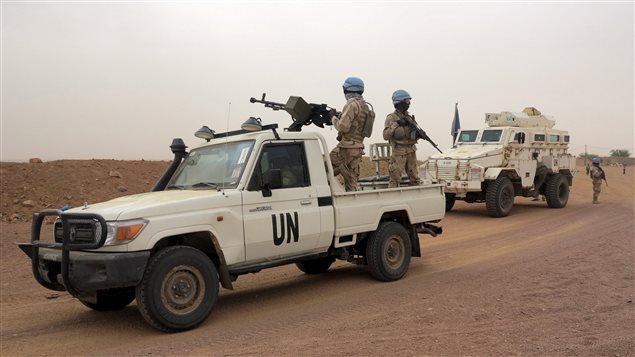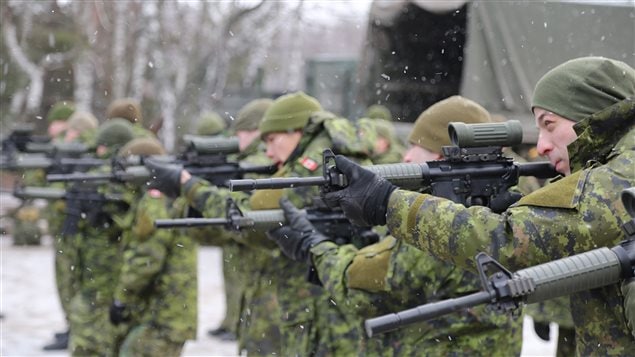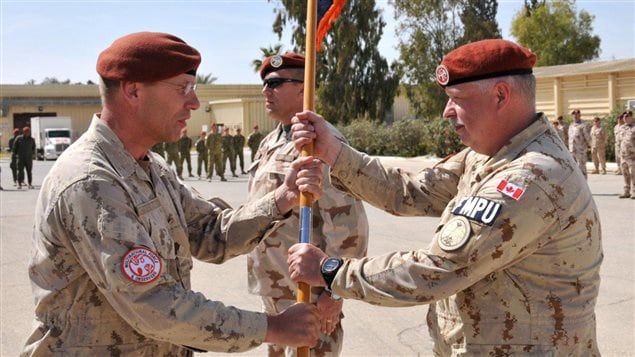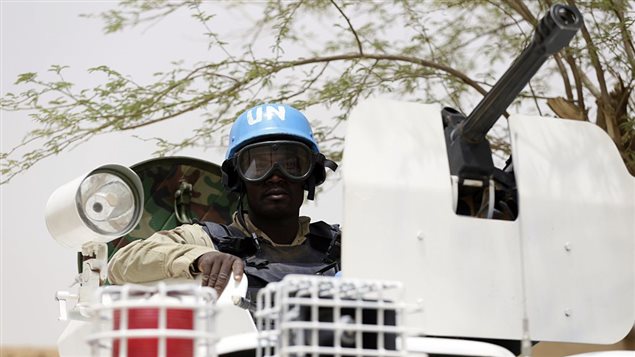The Liberal government must seek the approval of Parliament before sending troops on dangerous United Nations peacekeeping operations, says a new Senate report.
The Senate Committee on National Security and Defence looked into the government’s plans to dramatically increase Canada’s participation in United Nations peacekeeping operations at the request of Defence Minister Harjit Sajjan, said committee chair Senator Daniel Lang.
In August 2016, the government of Prime Minister Justin Trudeau pledged 600 troops, 150 police officers and $450 million over three years in support of UN peace operations.
The committee’s report, entitled UN Deployment: Prioritizing commitments at home and abroad, makes eight recommendations.
“We are asking and requesting in our first recommendation that the Government of Canada come to Parliament with a ‘Statement of Justification’, giving a clear understanding to Canadians why it’s in the national interests for Canada,” Lang said.
(click to listen to the full interview with Senator Daniel Lang)
ListenThe government must also outline the specifics of any UN deployment, the size of the mission, its goals, the costs and rules of engagement, as well as a fixed-term withdrawal plan, Lang said.
The committee heard testimony from 45 experts – Canadian and foreign military and diplomatic officials, academics and security experts, Lang said.
New realities

It became really clear to the committee members that the nature of peacekeeping has changed drastically, Lang said.
“It’s now referred to as peace operations because in many cases there is no peace to keep,” Lang said.
Witnesses heard by the committee recommended that Canada should play a more prominent role in training soldiers from other countries, provide intelligence and equipment, rather than deploying large numbers of soldiers on the ground, Lang said.
“That being said, one of our strongest recommendations is that we become involved with organizations such as the African Union and personnel there to help train and equip those particular troops to be able to do the job that they’ve been asked to undertake,” Lang said. “That would be a long term commitment but I think it would have an everlasting effect.”
National interest

Before making contributions to UN peace operations, the government must make sure that Canada’s already overstretched military has adequate funding and resources to meet its current obligations to NATO and the defence of the North American continent, Lang said.
Expert witnesses testified to the committee that in many cases the Canadian military hasn’t been properly resourced or funded to carry out the tasks it’s been assigned by the government, he said.
“For example in the Reserves alone we’re about 10,000 personnel short, plus the resources to pay them,” Lang said.
What most Canadians don’t realize is that Canada already has over 830 people deployed in the Middle East as part of the international coalition fighting ISIS, well over two hundred soldiers in Ukraine providing training to the Ukrainian military, and is about to deploy about 450 soldiers to Latvia to counteract Russia’s increasingly aggressive policies in Eastern Europe, Lang said.
Stepping up to the plate

In addition to that there are over 100 Canadian soldiers involved in various UN and non-UN peacekeeping operations.
Canada contributes approximately $1.5 billion annually to the UN and its agencies, including $324 million for peace support operations in 2015-2016, Lang said.
“Canada has stepped up to the plate and continues to step up to the plate,” Lang said.
But Canada is about to be asked to do much more, Lang said.
“I just came back from a parliamentary meeting in Washington this past week and it was clearly stated to us that the Americans are committed to NATO but they are expecting all the other contributing countries to contribute more than they have in the past,” Lang said. “And that from the point of view of Canada is about maybe between $15 to $20 billion, if we’re going to meet our commitments.”
That request has come from the Obama administration, Lang said. With Trump administration these requests will become even more insistent, he warned.








For reasons beyond our control, and for an undetermined period of time, our comment section is now closed. However, our social networks remain open to your contributions.